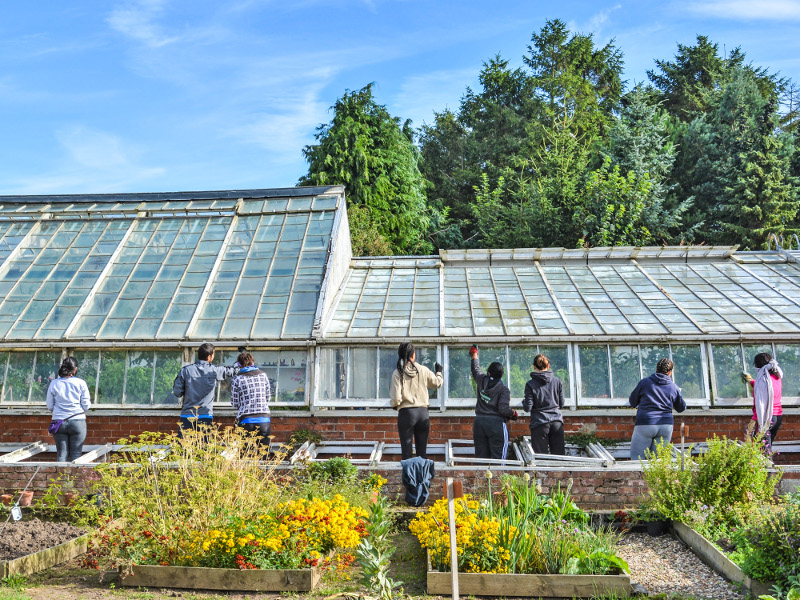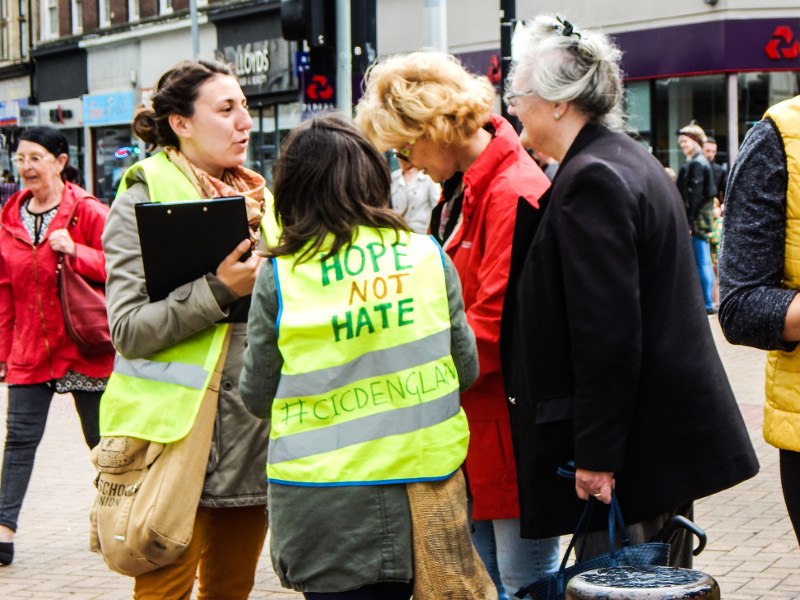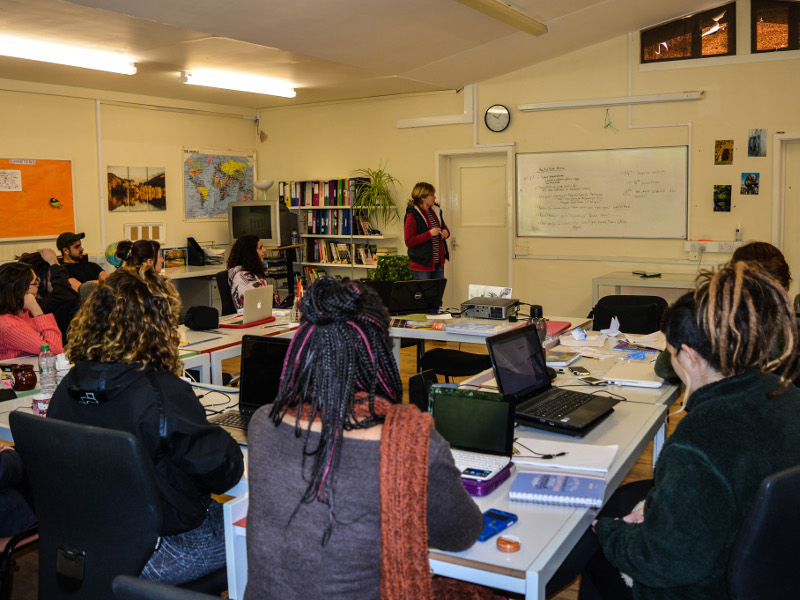The name DmM means The Determination of Modern Method. It is a method invented in Denmark by teachers of the same pedagogical background as the teachers at CICD.
The DmM is a modern pedagogical method that gives you, the student, the main responsibility for your own training and results.
Using DmM, the students study time is structured like this:
- Individual Studies: 50 % of the time
- Common Courses: 25 % of the time
- Personal Experiences: 25 % of the time
The whole content of the studies – courses, films, booklet and study tasks – are placed in a common online database making it possible for the student himself to decide what and when to study.
What you learn should be put to use....
...and that is why taking action is part of the programmes at CICD. We are a school for activists – the goal for you, who decide to join us, is to learn – train and prepare in many different ways to be “ready for action” as a volunteer at a development project in Africa or India.
Some examples:
- Leading a group in the Building Weekend to finish repainting the big kitchen
- Organising to prepare soup and bread once a week for the soup kitchen for homeless in Hull
- Reaching the goal of finding 5 new places per week for our clothing banks
- Organising debate evenings about current events for all at the school
- Starting a Portuguese club for the students going to Mozambique
How does DmM work?
The programme is divided into weekly modules, where some of the weeks are called “Study Weeks”. During a study week, the students have a goal of doing a specified number of tasks.
This method turns the idea of the school, and the role of teachers and students, on it's head!
The teacher gives courses, serious and high quality input, challenges you and your team mates, and guides you through the different periods of the programme.
1. The studies – with you as the driving force
All the subjects and materials and directions you need are accessed from the common DMM database....and the student – you! - are in charge of your own study plan. You send the tasks you solve to the teacher to comment on. (NB! Not “correct” but “comment” because there is not always a right and a wrong ….) The study tasks can be theoretical – such as studying the role of the World Bank in Southern African countries. They can also be practical – such as learning to make 3 different kinds of compost.
2. Courses – many and exciting and relevant
DMM also consists of courses – mostly held by the teacher. Many different activities can take place, depending on the plan and on the teacher, on the subject and on the state of the students. It can be a lecture of the teacher, preparation of a debate, considerations and common discussions, films, practical projects, visits in workshop of artists, actions of different kinds at the school or in the neighbourhood, and much more.
3. Experiences – many kinds, to learn many things from
Experiences are not usually recognized as part of the school education. Here you will find that experiences can be planned, treated and elaborated as a full part of the learning process.
Experiences make you laugh and cry and strengthens the unity with your team mates. They give you dramatic moments. You see things you never imagined you would see. You suddenly consider quite new things in your life. You are faced with unforeseen events and become more robust.
The experiences as part of DMM are divided into own experiences - that you have personally - and common experiences. The common experiences are part of the course programme – such as sports, cultural events at the school or in the community, hikes and “survival trips”, doing community work - and much more. The everyday life of the school is in this way installed with many and good breathing spaces that enrich the studies and courses.







